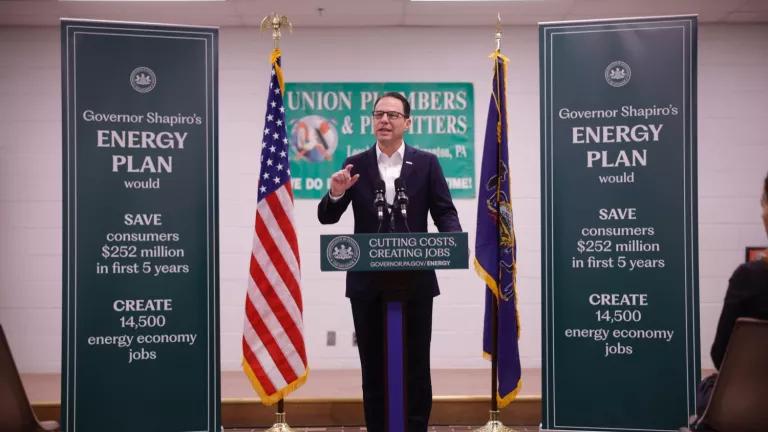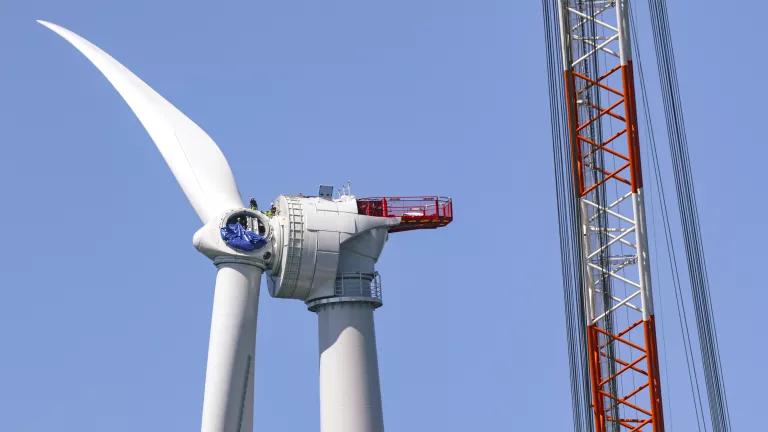Year-End Bill Shows Limits of Climate Action Under Trump
At the end of 2019 and after months of negotiations, Congress passed and the president signed a bill that contained record levels of funding for clean energy, climate and environmental priorities. Rep. Marcy Kaptur called the bill “the most important climate bill this Congress will pass in this session” and she’s absolutely right. At the beginning of the year it wasn’t clear that a bill with this ambitious of funding for clean energy and climate priorities would ever be signed by President Trump, so the fact it was allows for some celebration.
However, it’s hard to fully revel in this outcome because we also know that a very robust package of clean energy tax incentives was almost included—yet failed to make it over the finish line. Without these key incentives for deploying clean energy solutions like solar, electric vehicles, storage, offshore wind and energy efficiency updated and extended right now the urgent warning the IPCC report launched remains unanswered.
The Democratic caucus—with a couple of key Republican senators—pushed hard to get a robust tax deal passed, but at the end of the day it was clear that some in the Trump administration would just not let it through.
The robust tax deal that almost made it was said to include many of the items we've been calling for such as long-term extensions for solar, electric vehicles, storage, offshore wind and energy efficiency updates, technologies that would have had a large impact on clean energy deployment and climate emissions reductions.
Extending these clean energy and electric vehicle tax credits could have reduced U.S. net GHG emissions by up to nearly 100 million tons in 2030, or 19% below 2005 levels. And it would have also increased EVs to 38% of all car sales in 2030. These types of result are desperately needed as we are not on track to achieve our Paris Agreement commitments and need bold solutions to fix that.
A recent poll from Global Strategy Group found that 89% of Americans support extending incentives for solar, wind and energy storage. That is bipartisan and wide-reaching support unheard of on nearly any other issue and likely related to the fact that over 3 million Americans already work in clean energy and clean vehicles..
This importance and popularity is likely what got these credits to a point where they were set to be included in the deal. But at the end of the day it has become apparent that the Trump administration would not allow them in and were potentially willing to let a package to keep the government funded fail just to stop these clean energy incentives.
Yet, the bill does answer the call we put out earlier this year for dramatic increases in clean energy innovation funding. It provides record-level funding for clean energy and energy efficiency R&D, record-level funding for grants to transit districts that can be used to purchase electric buses, a significant increase in funding for climate change science, a large increase in funding for international efforts to combat climate change, and increase in programs to help address the impacts of climate change on tribal lands and manage the impacts of climate change on ecosystems generally. In all there is over a billion dollars of new funding here—getting us closer than ever the funding levels needed to help address climate change. My colleague Arjun Krishnaswami details these in his recent blog.
On top of that the bill not only stopped the proposed $1.7 billion cut to the EPA, but instead increased its funding by around $200 million. This extra money will help in retaining key staff at the agency. Much of it will also avoid the reckless environmental decision making of the Trump administration because it will be sent out to states in the form of key grant programs that have a track record of environmental success.
And on the tax front—it wasn’t all bad news as a few good provisions were included—like a one-year extension of the wind tax credit at 60% of its normal value. Originally set to phase-out entirely, this short extension will continue to help accelerate deployment of the largest source of clean, renewable power generation in the country. The bill also retroactively awards and extends for one-year credits for building efficiency, geothermal, small hydro-electric, landfill gas, and marine power, which is important to keeping them in the tax code. But this is still a small consolation after almost getting and then losing the needed robust tax package and is offset a bit as the final package also extends credits for bio-diesel, biomass, and trash incineration—technologies we now know aren’t compatible with a safe climate future.
From this outcome it’s clear that if we are going to make deeper progress on climate action with the current President, businesses, religious, labor and every other part of American society must do more to show the Trump administration that climate action is good for the country as well as the constituencies he is trying to represent. Until then, serious climate action by the federal government will remain severely limited.



